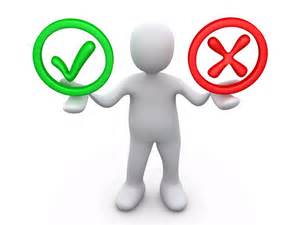
Generally, you can make an electronic payment by filing with an ACH Debit or ACH Credit (ACH - Automated Clearing House network). In some jurisdictions, they may even allow you to pay by credit card or a FEDWIRE.
An ACH Credit is when the taxpayer or third party provider initiates the payment through their financial institution, then their financial institution electronically transmits the payment directly to the jurisdiction. This would be similar to your personal “bill pay” through your own bank.
Benefits to ACH Credit:
- You can file your returns early then batch the payments for initiation at a later time
- Payer controls the initiation and timing of payments
- Payer controls the date the funds are debited from their account
- Payments are generally posted the next business day
- The cost is a fraction of a FEDWIRE
- Eliminates lost or stolen check problems
- Reduces administrative and check processing costs
Things you may need to consider when choosing ACH Credit:
- Jurisdictions may require a specific addenda format when creating these transactions. If a jurisdiction accepts ACH Credit they will post their specific addenda format for you to incorporate into your transactions. A payment may not be credited to a specific account if the correct addenda format is not used.
- These transactions are usually part of a batch process, so depending on the batch size, it may be difficult to isolate the transaction for proof of payment.
In an ACH Debit transaction the taxpayer or third party provider supplies the jurisdiction with their bank account and the jurisdiction pulls the money directly from their account. Personally you may set up this type of transaction when you are paying your mortgage or utility bill at a specific time of the month.
Benefits to ACH Debit:
- There is usually no cost with this type of transaction; however, there are a couple of jurisdictions that may charge a service fee of $1.00 or less
- Payer controls the initiation and timing of payments for the most part
- Payer controls the date the funds are debited from their account
- Payments are generally posted the next business day
- Instant confirmation from the jurisdiction
- Eliminates lost or stolen check problems
- Reduces administrative and check processing costs
Things you may need to consider when choosing ACH Debit:
- Your treasury department may have specific guidelines and controls or may not allow this type of transaction at all, due to the release of sensitive bank account information or that funds pull directly out of their account.
- Initiating the payment can be separate from filing the return. For example, you may get a confirmation number for filing the return and then a separate one for initiating the payment. Be aware that you may need to go into another area of the e-file website to initiate the payment.
FEDWIRE is a real-time gross settlement system that enables participants to initiate fund transfers that are immediate, final, and irrevocable once processed. I do not recommend this type of payment unless it is urgent. The fees associated with this type of transaction can be around $25 or higher and may only be accepted in some states.
Paying with a credit card may be okay if the taxpayer is very small, but be aware that this transaction will usually have a service charge with an average of 2% of the amount being transmitted. I do not recommend this method because I feel a credit card should be used for business purchases, not to remit your taxes. I don’t consider this a “clean” transaction.
The preferable methods are either ACH Credit or ACH Debit.
I prefer the ACH Credit process as it gives the taxpayer the most control over the payment process. There are certain jurisdictions though that require an ACH Debit payment. Regardless of the form of payment, be sure to get some type of payment confirmation in case of a later dispute.






.png?width=1200&height=628&name=2023%20logo%20with%20SOC%20and%20clearly%20rated%20(2).png)